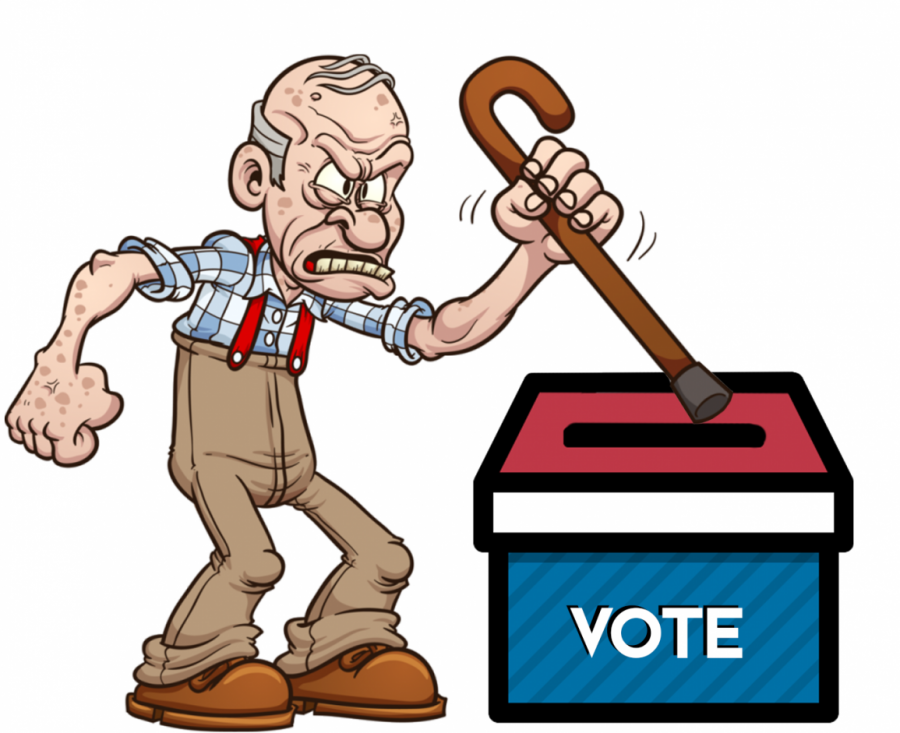The voting age should be raised
Whether it be to decide who receives the final cookie from the jar, or who will lead a nation to prosperity, most people have communally agreed or voted in some way, shape, or form at some point in their lives. Voting and rallying to an agreement are how people are able to come to reasonable conclusions about a subject, and how to organize a solution so it not only benefits themselves but also the people around them.
Although anyone of any given age is able to and will communally decide something as trivial as who is to receive the last snack from the pantry, other matters requiring the ability to vote are restricted to people of a certain age, such as political elections in the United States of America.
As of now, the age of eligibility to vote in the USA is 18 years of age, among other requirements, including being an American citizen. Despite 18 years of age being the threshold for legal adulthood in the USA, this in no possible way should reflect how young one can be to aid in deciding the nation’s leader for the following four years. The eligibility age threshold to vote in the USA should be raised by a rather significant margin: 21 years of age.
As an American, it is outlined by the Constitution that you are to be given the right to vote, when of eligible age, and help decide who will lead the nation, among a variety of other liberties. As a person of 18 years of age in the USA, why shouldn’t they be automatically granted this liberty? The question does not boil down to the fact that they are of age, but rather down to how much experience they have in being an adult in the USA and the extent of their knowledge of the US political structure.
At 18 years old, a person has just barely graduated from the confines of childhood, and is not well-adapted to and may not understand the real world’s inner-workings, such as the economy and foreign policy. Why should a citizen who has little understanding of the USA’s foundational structures be gifted the same opportunity to decide how these very structures will be altered and maintained when compared to older and vastly more informed citizens? Simply put, they should not be.
It has by now been well established why those of recent legal adulthood should not help decide the leaders and representatives of the USA, but to what extent the threshold should be raised is still up in the air.
21 years of age is a fair deviation from the margin of 18 years old, as it gives those who recently emerged from childhood into adulthood a decent length of time to learn how the country functions, and how those in power affect those workings. In addition, a three-year period of time after becoming an adult would most likely allow individuals to observe the changes in the nation after someone has been in power, or if that power is shifted to someone else. This not only allows people to make a much more informed decision on who they are voting for, but also allows them to carefully reflect on why they are to choose one candidate over another, whether it be in terms of the Presidency, the House of Representatives, the Senate, or even in local elections for mayor or chairmen of their respective cities.
Additionally, it can be noted that the age to vote in the USA is much lower than the requirements for other, much more trivial concepts. It can be seen as rather ridiculous that individuals in the US can vote for presidential candidates and decide the fate of the country, but are prohibited from consuming any sort of alcohol or marijuana by virtue of misdemeanor or felony charges. Raising the age of voting would simply make much more sense in terms of age requirements for certain activities in the USA.
Some may argue that the voting age should be maintained, or even lowered, as there are some issues such as minimum wage and educational investments that affect citizens on the younger end of the spectrum. While it is reasonable at face value to allow teenagers and young adults to have a say in issues that do affect them somewhat, there are many more experienced adults that are affected by most of these issues in a much more severe and relevant way than teenagers and young adults are, therefore proving why the votes of the extremely young and inexperienced should not cancel out those of the older and experienced, rendering this claim a rather moot point.
Although this concept of raising the voting age in the USA will most certainly come with its fair share of drawbacks and controversies, the idea overall is simply the more intelligent choice the nation should make to aid in the reliability of who is deciding what. Not only will this admittedly make a significant change to how the decision of political structures functions in a positive way, but also allow the nation to improve the stability of the people’s trust in their leaders.
Your donation will support the student journalists of Cape Coral High School. Your contribution will allow us to purchase equipment and cover our annual website hosting costs.

“No matter what anybody tells you, words and ideas can change the world.”
-John Keating/Robin Williams (Dead Poets Society)








